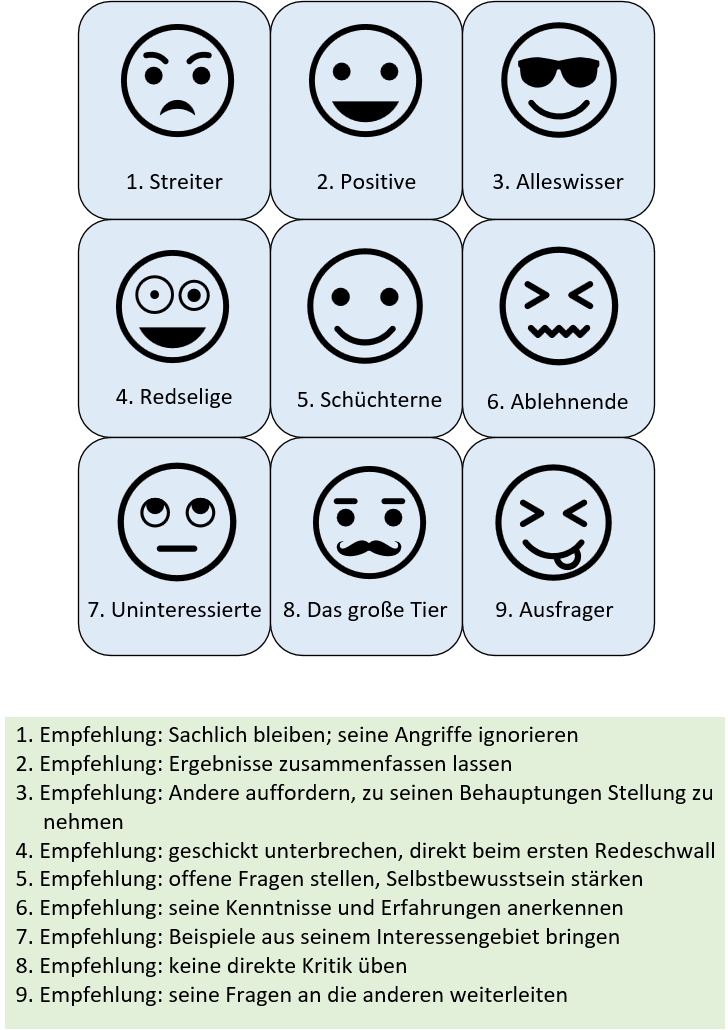Participant Types
What types of participants are there and how do you handle them?
Participant Types
Participant Types
In a seminar, you'll find people with different traits, personalities, and values. This makes each seminar a unique experience for the trainer, but it also presents a challenge. The seminar leader must handle all participants well so they feel valued and engaged, contributing actively to the seminar.
Using the following participant types can help identify strategies for common seminar situations. Remember, a participant usually doesn't fit one type throughout the entire seminar.

1. The Challenger
The Challenger likes to provoke and tries to unsettle the seminar leader or participants. They won't miss a chance to start a discussion and embarrass others.
The seminar leader should stay calm and composed, ignoring such provocations.
2. The Positive One
The Positive One is a great asset to the seminar. They find something good in everything and everyone, participating actively and with interest.
The seminar leader should let the Positive One speak often and summarize results, spreading their positive energy to others.
3. The Know-It-All
The Know-It-All wants to be the center of attention and insists their opinion is the only right one. This can disrupt the seminar flow.
The seminar leader should encourage others to respond to the Know-It-All's claims, showing there are other opinions and participants.
4. The Talkative One
The Talkative One doesn't have much to say on the topic but talks a lot anyway. They want to be heard and might interrupt others.
The seminar leader should skillfully interrupt the Talkative One's first speech to prevent disruption.
5. The Shy One
The Shy One won't actively participate in the seminar. Even if they know the answer, they'll let others respond.
The seminar leader should boost the Shy One's confidence by asking open questions, encouraging them to share their views.
6. The Resistant One
The Resistant One will boycott the seminar flow and not participate actively. Often, they have years of experience and can't see the seminar's value at first.
The seminar leader should acknowledge the Resistant One's knowledge and experience to prevent disruption from their resistance.
7. The Uninterested One
The Uninterested One doesn't care much. They likely didn't choose the seminar and will try to just sit through it without engaging.
The seminar leader should include examples relevant to the Uninterested One's interests to encourage active participation.
8. The Big Shot
Big Shots are usually supervisors of other participants.
The seminar leader should avoid direct criticism of a Big Shot to prevent them from feeling attacked. If they argue with the leader, it could disrupt the seminar. They might also question the leader's abilities in front of everyone, portraying them as incompetent.
9. The Inquisitive One
The Inquisitive One asks questions about every minor detail, which doesn't help the group progress.
The seminar leader should redirect the Inquisitive One's questions to other participants. This prevents the seminar from becoming a dialogue between just the Inquisitive One and the leader. It also encourages more active participation from others and reduces the Inquisitive One's questioning.
